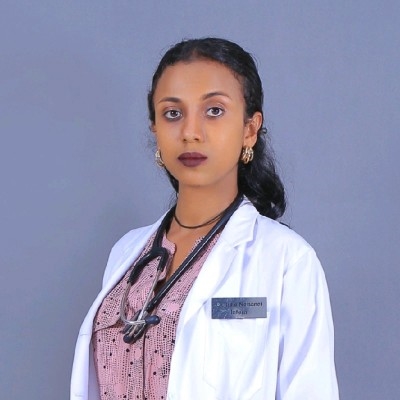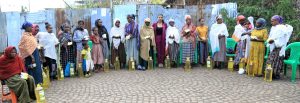IN A NUTSHELL
Editor's Note
 We are pleased to publish as received the key highlights of a project proposal by PEAH acknowledged partner and Ethiopian activist Liele Netsanet Desta.
In 2021 Dr. Netsanet founded Gainhopes as a visionary non-profit organization with the mission to empower women and provide them with the resources and opportunities they need to overcome obstacles and reach their full potential.
See HERE the interview to her PEAH made three months ago.
Now, in turning the spotlight on the project highlights below, PEAH aims to serve as an intermediary while inviting our network and interested readership to interact with and comment on the content and suggestions of this post
We are pleased to publish as received the key highlights of a project proposal by PEAH acknowledged partner and Ethiopian activist Liele Netsanet Desta.
In 2021 Dr. Netsanet founded Gainhopes as a visionary non-profit organization with the mission to empower women and provide them with the resources and opportunities they need to overcome obstacles and reach their full potential.
See HERE the interview to her PEAH made three months ago.
Now, in turning the spotlight on the project highlights below, PEAH aims to serve as an intermediary while inviting our network and interested readership to interact with and comment on the content and suggestions of this post

By Liele Netsanet, MD
Founder and CEO at Gainhopes, Ethiopia
+251909525175
Providing Sexual and Reproductive Health System for Marginalized Women in Northern Amhara Region, Ethiopia
Highlight of the Proposal
I'd like to share the key highlights of a project proposal I've drafted aimed at empowering marginalized women through a sexual and reproductive health initiative. I believe this could create an opportunity to assist me in connecting with collaborative institutions or individuals interested in partnering with me and support many desperate lives
Introduction
–Focus: Addressing sexual and reproductive health (SRH) challenges for marginalized women in Ethiopia, especially those who are disabled or displaced.
–Goal: Empower these women and reduce unintended SRH consequences through sustainable policies.
Background
–Challenges: Barriers to education, economic empowerment, and healthcare due to societal norms and instability.
–Current Situation: Low SRH service usage (33.27%), lack of community awareness, high rates of unwanted pregnancies.
–Statistics:
– 64.6% of young people with disabilities are unaware of SRH services.
– The Somali region has the lowest contraceptive use (3.4%).
Project Objectives
- Identify access barriers to SRH services.
- Assess needs and preferences of marginalized women.
- Provide HIV/AIDS prevention and counseling.
- Evaluate existing SRH services and identify gaps.
- Enhance service accessibility and quality.
- Train medical personnel on inclusivity.
- Collaborate with civic societies and local governments.
Methodology
–Evaluation: Use data review, surveys, and interviews to identify barriers.
–Implementation: Involve disabled women in developing inclusive strategies.
–Collaboration: Partner with civic organizations and officials for sustainable outcomes.
–Advocacy: Promote healthcare rights nationally.
Expected Outcomes
– Improved SRH access for marginalized women.
– Reduced HIV/AIDS risks.
– Development of inclusive healthcare policies.
– Enhanced support for SRH initiatives within communities.
– Ongoing progress assessment through meetings.
– Increased advocacy for the rights of disabled and displaced women.
PEAH readers are invited to interact with and comment on the content and suggestions of this post
Contact person:
Liele Netsanet, MD
lielenetsanet1@gmail.com
+251909525175
